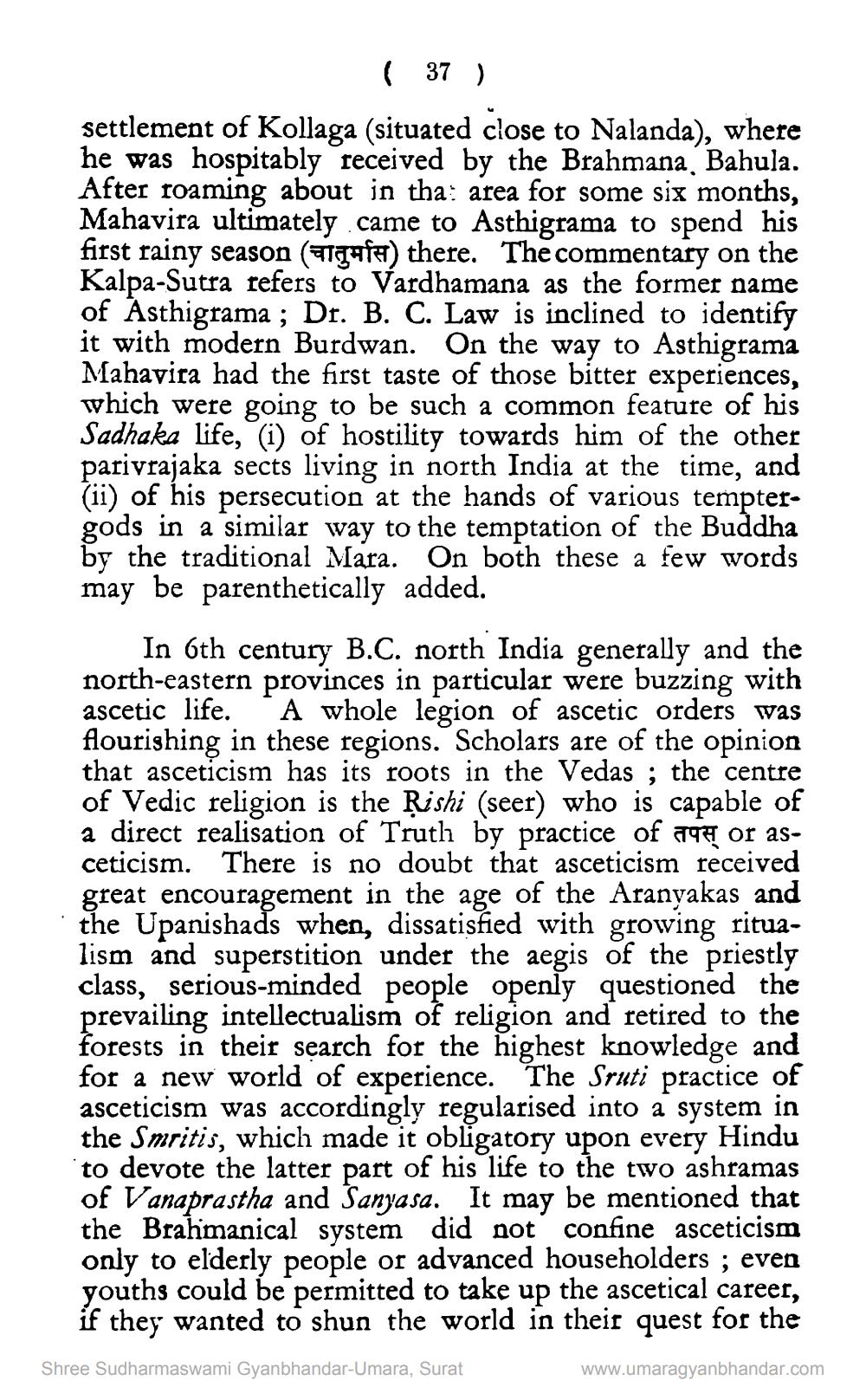________________
( 37 ) settlement of Kollaga (situated close to Nalanda), where he was hospitably received by the Brahmana Bahula. After roaming about in tha: area for some six months, Mahavira ultimately came to Asthigrama to spend his first rainy season ( af) there. The commentary on the Kalpa-Sutra refers to Vardhamana as the former name of Asthigrama; Dr. B. C. Law is inclined to identify it with modern Burdwan. On the way to Asthigrama Mahavira had the first taste of those bitter experiences, which were going to be such a common feature of his Sadhaka life, (i) of hostility towards him of the other parivrajaka sects living in north India at the time, and (ii) of his persecution at the hands of various tempter. gods in a similar way to the temptation of the Buddha by the traditional Mara. On both these a few words may be parenthetically added.
In 6th century B.C. north India generally and the north-eastern provinces in particular were buzzing with ascetic life. A whole legion of ascetic orders was flourishing in these regions. Scholars are of the opinion that asceticism has its roots in the Vedas ; the centre of Vedic religion is the Rishi (seer) who is capable of a direct realisation of Truth by practice of 797 or asceticism. There is no doubt that asceticism received great encouragement in the age of the Aranyakas and the Upanishads when, dissatisfied with growing ritualism and superstition under the aegis of the priestly class, serious-minded people openly questioned the prevailing intellectualism of religion and retired to the forests in their search for the highest knowledge and for a new world of experience. The Sruti practice of asceticism was accordingly regularised into a system in the Smritis, which made it obligatory upon every Hindu to devote the latter part of his life to the two ashramas of Vanaprastha and Sanyasa. It may be mentioned that the Brahmanical system did not confine asceticism only to elderly people or advanced householders ; even youths could be permitted to take up the ascetical career, if they wanted to shun the world in their quest for the
Shree Sudharmaswami Gyanbhandar-Umara, Surat
www.umaragyanbhandar.com




